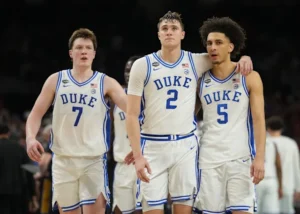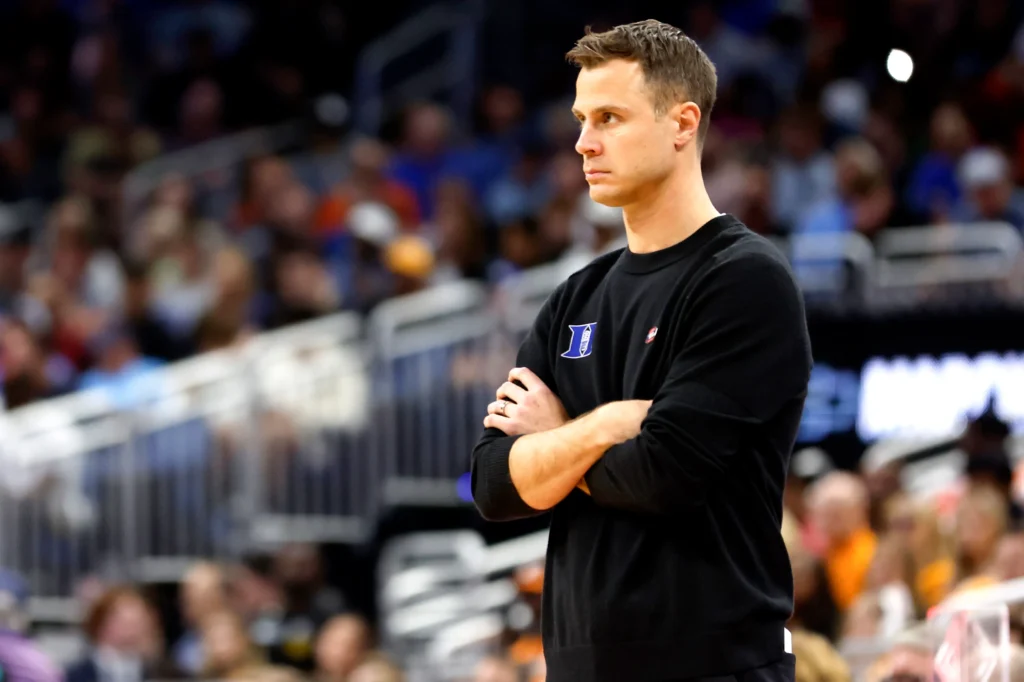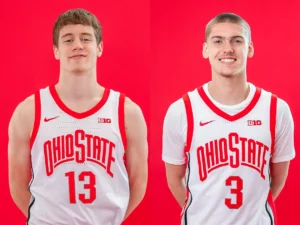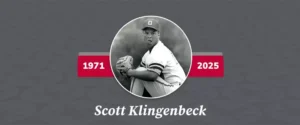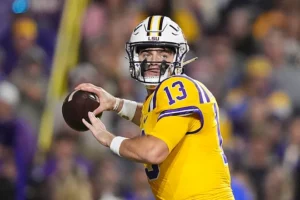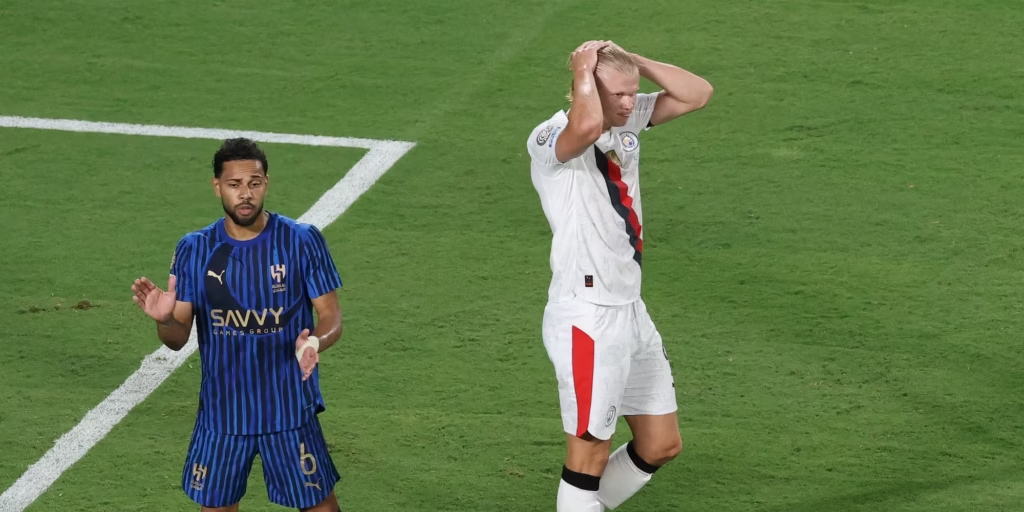
The 2025 NBA Draft was filled with drama, anticipation, and strategic maneuvering, and one of the more intriguing developments came when the Washington Wizards selected Walter Clayton Jr. with the 18th overall pick before trading him to the Utah Jazz. The move signaled the Jazz’s confidence in Clayton’s potential as a dynamic backcourt piece, and perhaps more importantly, it gave the organization a player whose combination of scoring, athleticism, and maturity could help define its next era of basketball. For Clayton, this trade marks the beginning of an exciting professional journey—one that could see him thrive in a system designed for his particular strengths.
Walter Clayton Jr. is not your typical college prospect. The 6-foot-3 guard from the University of Florida emerged as one of the most efficient and explosive scoring threats in the NCAA last season. Averaging 18.7 points, 4.2 rebounds, and 3.6 assists per game while shooting 40.8% from three-point range and 87% from the free-throw line, Clayton showcased a polished offensive game that caught the attention of NBA scouts and executives alike. His ability to create his own shot, finish at the rim through contact, and stretch the floor with deep shooting range made him one of the most lethal guards in college basketball, and his mature decision-making added another layer of intrigue.
Utah’s decision to target Clayton in a draft-day trade shows their commitment to rebuilding a competitive roster with young, dynamic talent. Since trading Donovan Mitchell and Rudy Gobert, the Jazz have operated with a clear long-term vision. They’ve stockpiled draft picks, developed young players like Keyonte George and Taylor Hendricks, and built a strong developmental infrastructure. Acquiring Walter Clayton Jr. fits seamlessly into this trajectory. He offers an immediate injection of scoring ability, positional versatility, and a winning mentality, having played in high-stakes SEC matchups and demonstrated poise in crunch time.
Clayton’s journey to the NBA is a story of persistence and growth. He began his collegiate career at Iona under Rick Pitino, where he developed a strong foundation in fundamental basketball and two-way accountability. After transferring to Florida, he elevated his game, adjusting seamlessly to the rigors of SEC competition. His breakout performances against top-ranked opponents showed he could shine under pressure, and his consistency over the course of the season turned him from a mid-round projection into a legitimate first-round pick. That rise speaks volumes about his work ethic and adaptability—qualities that bode well for his future in the league.
Utah’s current roster construction is a work in progress, but Clayton fills a clear need. While Keyonte George and Collin Sexton have provided bursts of offense, the Jazz have lacked a consistent perimeter scoring threat who can also serve as a secondary playmaker. Clayton offers that balance. He’s not a traditional point guard, but he’s comfortable initiating offense, reading defenses, and making the right pass in pick-and-roll situations. His quick first step, body control, and ability to change speeds make him difficult to stay in front of, and his pull-up shooting is already NBA-ready. He doesn’t need a lot of space to get his shot off, and he’s unafraid to take big shots late in games.
Defensively, Clayton brings competitiveness and physical strength. While he may not project as an elite on-ball defender due to average lateral quickness, he plays with energy and intelligence. He fights through screens, communicates well, and knows how to rotate and contest without fouling. In Utah’s system—which emphasizes team defense and disciplined rotations—Clayton’s effort and instincts should help him contribute early, especially if paired with lengthier wings who can cover for any mismatches. His strong frame also allows him to hold his own against bigger guards, which will be crucial in a league where size and switchability are increasingly important.
For Utah head coach Will Hardy, the addition of Clayton provides another weapon to deploy in creative ways. Hardy has shown a willingness to mix lineups, trust young players, and experiment with roles to find the best combinations. Clayton’s ability to play either guard spot opens up multiple possibilities. He can run the second unit as a lead ball-handler, play off the ball alongside George or Sexton, or close games when the Jazz need scoring punch and decision-making. His off-ball movement and catch-and-shoot ability make him an ideal complement to ball-dominant guards, and his clutch shooting could become a late-game asset for a team still searching for an identity in close games.
Clayton’s mentality might be his most valuable trait. He’s been described by coaches and teammates as unshakable—focused, mature, and deeply competitive. He approaches the game with a sense of purpose, studies film religiously, and is constantly looking for ways to improve. That drive has earned him respect throughout his basketball journey and will serve him well as he adjusts to the NBA’s speed and physicality. He’s not coming in with a sense of entitlement. He knows he has to earn his minutes and prove himself on both ends of the court.
From the Jazz’s perspective, the trade with Washington was about more than just filling a roster spot. It was about targeting a player who fits the organizational culture and long-term plan. The Jazz have been quietly assembling one of the more promising young cores in the Western Conference, and Clayton adds a different dimension to that mix. He’s a shot-maker and a floor-spacer, but he’s also a leader by example—a player who raises the standard of practice with his professionalism and preparation. That influence, even as a rookie, could be invaluable for a team trying to forge a new identity.
The trade also represents another step in the Wizards’ ongoing roster overhaul. Washington has embraced a full rebuild, prioritizing draft capital and long-term flexibility over immediate results. By trading Clayton, they may have acquired future assets or cap relief, depending on the details of the deal, and while fans may question the wisdom of passing on a ready-to-contribute player, the Wizards are clearly playing the long game. For Clayton, though, the move may be a blessing in disguise. Utah offers a more stable environment, clearer development track, and a coaching staff that values player growth and versatility.
In terms of fit, Utah’s fanbase should be excited. Clayton is the kind of player who earns respect quickly—not because of flashy highlights, but because of consistent effort and results. He’s capable of taking over quarters with scoring runs, but he also makes smart reads, keeps the ball moving, and never forces the action. His balance of aggression and control is rare for young guards, and it suggests a high floor to go along with his intriguing ceiling. If he can continue refining his playmaking and become more comfortable creating for others, he has the potential to be a long-term starter in the league.
The road ahead will be challenging. Clayton will need to adjust to longer defenders, quicker rotations, and more complex schemes. He’ll face pressure from veterans trying to secure contracts and rookies eager to make their own mark. But if his past is any indication, he’ll rise to the occasion. He’s already overcome doubters, changed programs, elevated his game, and now finds himself with an NBA opportunity that he’s fully prepared to seize.
Utah’s selection of Walter Clayton Jr. may not have been the flashiest move of the night, but it could prove to be one of the most quietly impactful. In a league increasingly dominated by guards who can shoot, score, and create at multiple levels, Clayton fits the mold. He’s efficient, fearless, and battle-tested. He’s ready to compete, ready to contribute, and ready to grow.
As he dons the Jazz uniform for Summer League and eventually training camp, the spotlight may not shine as brightly on him as it will on top-five picks or headline-grabbing trades. But make no mistake—Walter Clayton Jr. has the talent, mindset, and opportunity to become a core piece in Utah’s quest to return to relevance in the Western Conference. The journey begins now, not in Washington, but in Salt Lake City, where a smart organization saw something special and made sure they got their guy.
